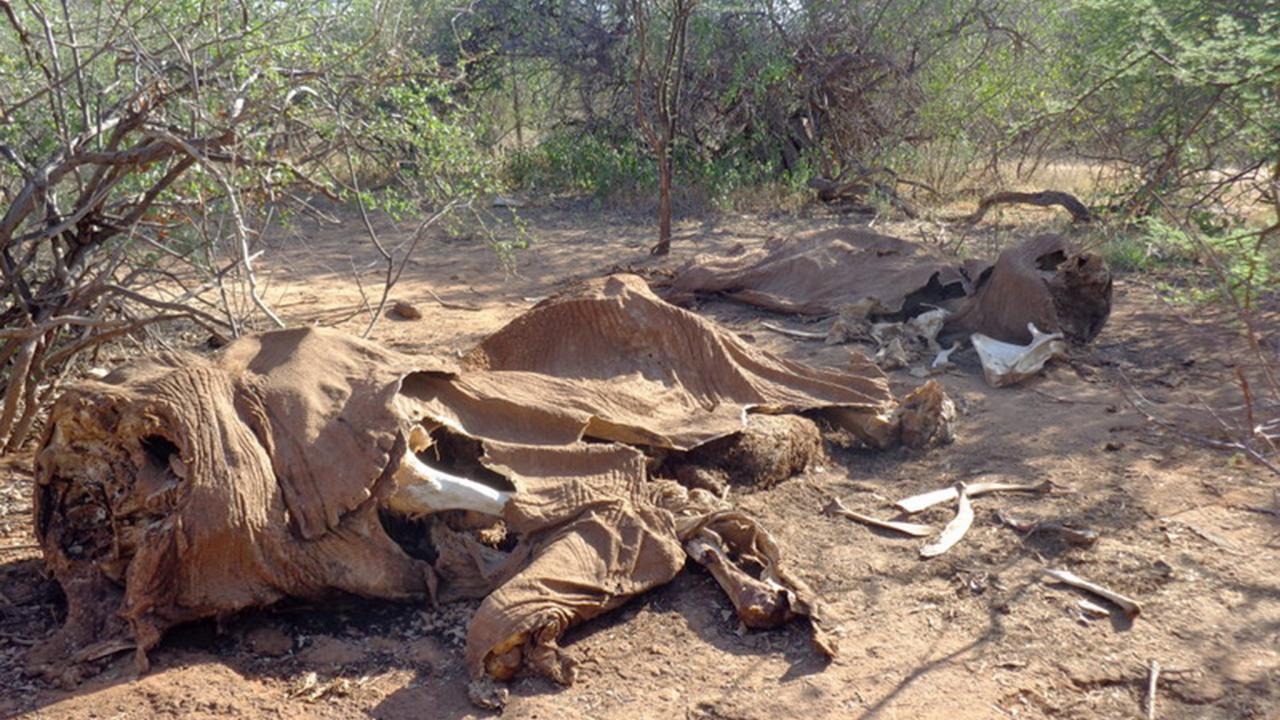
Others appeared to have been freshly killed, partly covered by bushes in an attempt to hide them from view. The tusks of 87 animals, which were counted during aerial surveys over the past few months in Botswana, had been chopped off — evidence of what conservationists are calling one of the biggest slaughters in recent years.
Michael Chase, director of the charity Elephants Without Borders, which conducted the surveys, said he had never seen so many dead elephants in one go. After counting 48 during a single flight in August, Mr. Chase wrote in a report that the tally was “indicative of a poaching frenzy which has been ongoing in the same area for a long time.”
The numbers were expected to climb as the survey continues. But the results so far already signal a major escalation in elephant poaching, said Tom Milliken, a program manager at Traffic, a nonprofit organization that monitors wildlife smuggling.
Botswana is home to the world’s largest elephant population, more than a third of all Africa’s elephants, according to the most recent Great Elephant Census, which Mr. Chase helped produce. It is also one of the most stable countries in Africa with one of the best wildlife records.
The slaughter shows that despite all the time, money and energy poured into anti-poaching operations in recent years, organized poaching gangs can still wipe out large herds with impunity.
Despite bans on legal sales, demand for ivory remains sufficiently high to sustain underground markets. In many African countries, the money on offer has continued drawing poachers.
“Rather than shooting poachers to kill them, we should be focusing on who’s controlling the trade,” Ms. Hübschle said. “Follow the money and target the intermediaries, and the organizers behind them.”
Botswana’s new government, which took power in April, demilitarized the anti-poaching unit soon after taking office without explaining why.
The “government has decided to withdraw military weapons and equipment from the Department of Wildlife and National Parks,” Carter Morupisi, permanent secretary to President Mokgweetsi Masisi, told reporters in May.
Botswana’s government disputed the findings of the aerial surveys, calling them “false and misleading.”
The ministry of environment, natural resources, conservation and tourism said in a statement on Tuesday: “At no point in the last months or recently were 87 or 90 elephants killed in one incident in any place in Botswana.”
Elephants Without Borders, however, did not say the elephants were killed in one incident, only that they had been detected in aerial surveys since July.
Kelly Landen, a program manager with the group, said Elephants Without Borders had reported fresh carcasses to the government after the first week of surveys, but received no response. Since then, the organization had sent two further reports to local authorities, Ms. Landen added.
The ministry said that a “verification mission” between July and August had found that a majority of the animals had not been poached, but rather died from natural causes and “retaliatory killings as a result of human and wildlife conflicts.”
Elephants Without Borders responded that the poached animals had their faces cut off for their ivory, and that poachers appeared to have been “specifically targeting large old bulls.”
The elephants were killed near the Okavango Delta wildlife sanctuary, a well-known wilderness area.
“The region has a strong military presence with two airfields,” the Elephants Without Borders report said, adding: “The Botswana government can’t be expected to stop this poaching alone.”
According to The Southern Times, a regional newspaper, one reason for Botswana’s decision to disarm its anti-poaching unit may have been growing tension with its neighbors. In the past two decades, at least 52 suspected poachers from Namibia and Zimbabwe have been killed by Botswana’s security forces, the newspaper said, citing military records and news reports.
Mr. Milliken of Traffic said that elephant poaching in Africa had surged since 2009 in response to demand for ivory in China and Vietnam. In many places, poaching levels had exceeded natural replacement rates for elephant populations.
“Anything newly born is being offset by poaching,” Mr. Milliken said.
China has banned its ivory trade, but this has not reduced poaching levels, Mr. Milliken said, adding that traders continued to sell ivory products on social media, while neighboring countries had active ivory markets for Chinese tourists. And Asian criminal syndicates — particularly those from China and Vietnam — have begun processing ivory in Africa to evade detection, according to recent research by Traffic.
“The policy moves on the demand side are much like one hand clapping if you’re not dealing with the Chinese threats to elephants in Africa,” Mr. Milliken said.













Comment